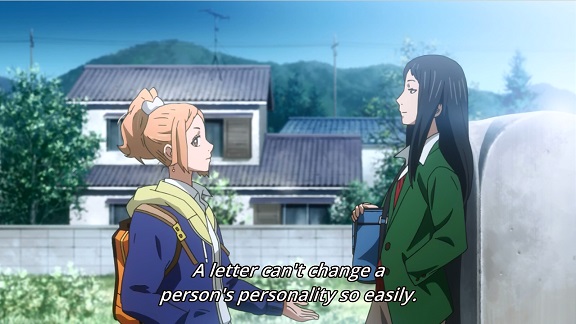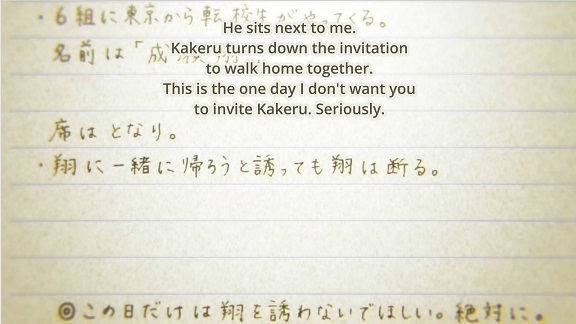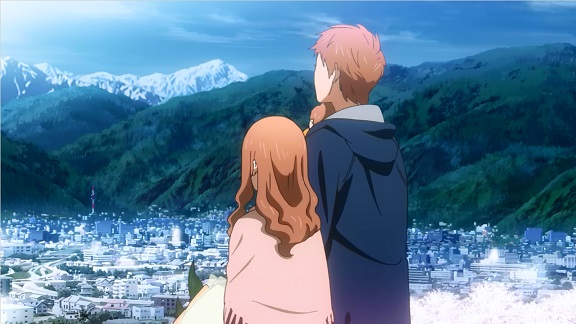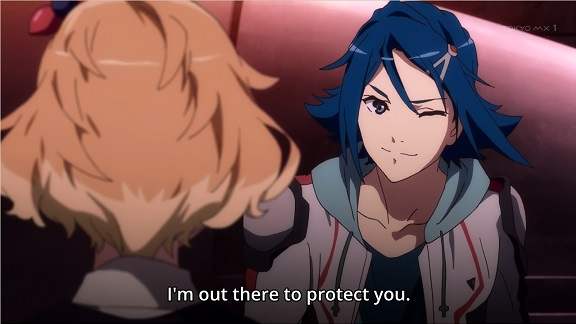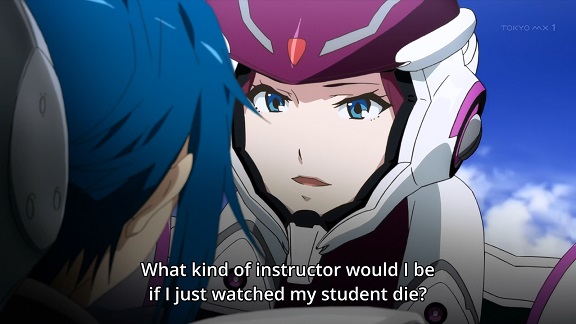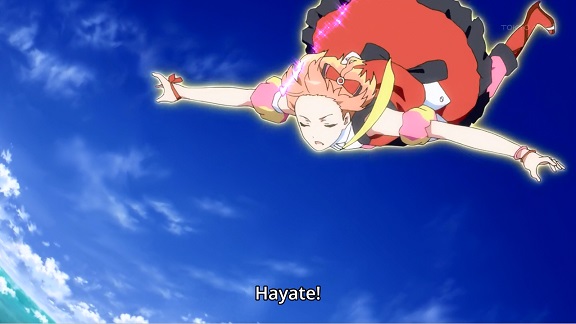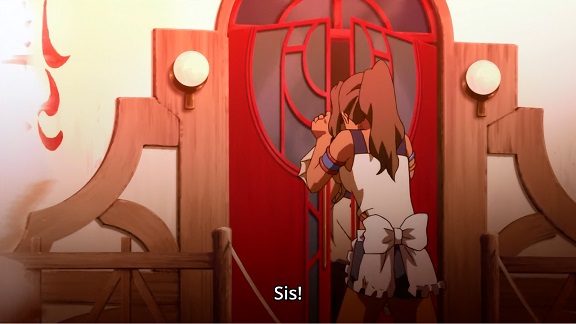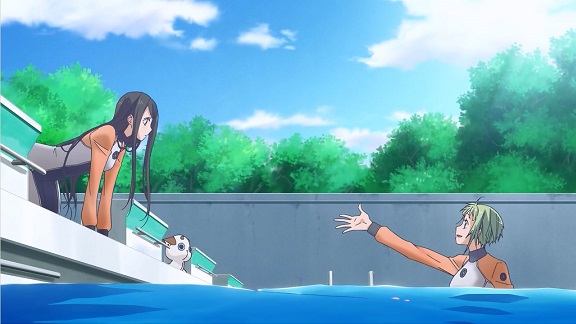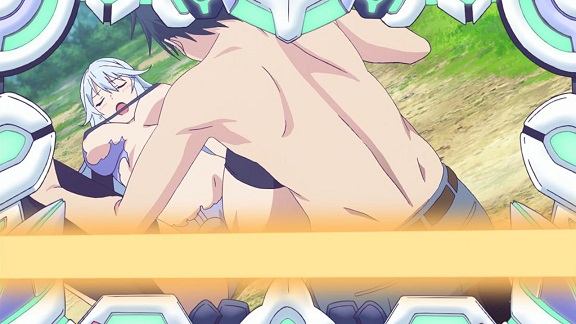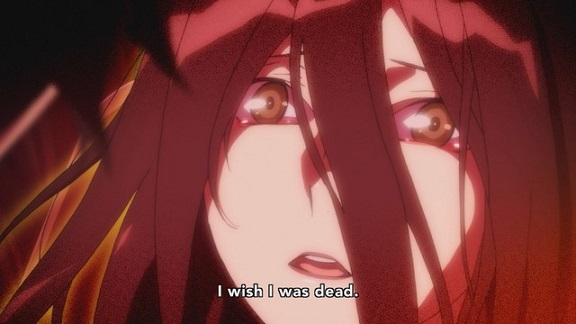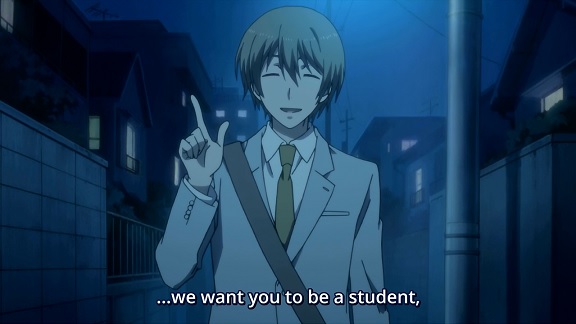
ReLIFE takes a typical wish fulfillment fantasy — going back to high school as an adult, being able to do all the things you couldn’t do when you actually were seventeen — and uses it as an indictment against modern Japanese society. Because it’s apparantly easier to imagine inventing a pill that turns a twentyseven year old loser back into his seventeen year old self so he can get a chance to redeem himself than it is to do something about the root causes of why he quit his first job after only three months, or why this would keep him from getting a new one. This makes ReLIFE one of the most subversive anime series of recent memories. Even a series like Welcome to the NHK tended to blame its protagonist more than society for his troubles, but ReLIFE‘s Kaizaki Arata has good reasons for having become a semi-NEET. Those are only slowly revealed in the course of the series; it’s episode eleven before we get the full story, though hints are dropped early on.
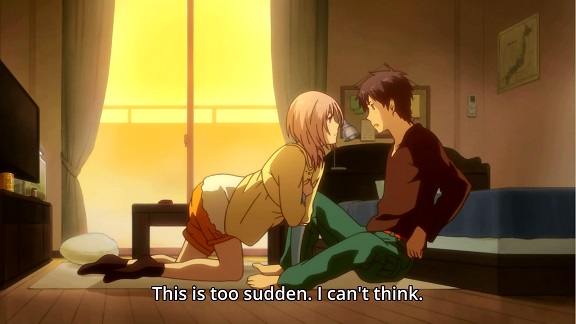
On the surface though ReLIFE behaves as a standard romantic comedy, but with the twist that this time it’s not the protagonist who is at the heart of things. Instead it’s Kaizaki’s flashy new friend Oga: handsome, excellent student and dense as a brick when it comes to romance. His childhood friend Kariu has been chasing him since middle school, wants to be the class representative together with him and is miffed when instead resident uberbrain Hishiro took it. Hishiro herself admits she’s socially awkward with no friends and therefore has no clue about Kariu’s feelings, instead attempts to befriend her which Kairu sees as sneering. Kairu also has a friendly rivalry with the captain of her volleyball team, who like Hishiro completely fails to notice this rivalry. What with his more adult outlook on life (and his ability to actually talk normally to girl, something his classmates aren’t slow to notice) Kaizaki seems to be in an ideal position to help solve these problems.
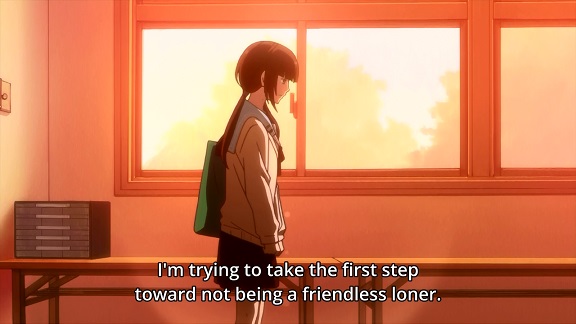
Which seems to be one of the reasons Ryo, Kaizaki’s supervisor in the ReLIFE project and fellow classmate, wanted him there. So far, so conventional: loser dude redeems himself by solving cute girls’ problems for them as they fall in love with him. Only the latter doesn’t happen while Kaizaki is far from interested in redoing his life, treating it as a job rather. He’s also rather peripheral to resolving several of those problems, little more than a bystander as the girls resolve their conflicts on their own. Which to be honest is a step up from him having to solve all their problems for them, even if it makes him a bit superfluous to the story. Kaizaki of course has good reasons not too get too involved with high school girls, considering he’s still twentyseven year old even if he looks ten years longer, but there are also deeper reasons for why he is hesitant to interfere too much, reasons having to do with just why exactly he left his first job after only three months, reasons that are going to be spoilers to talk about.
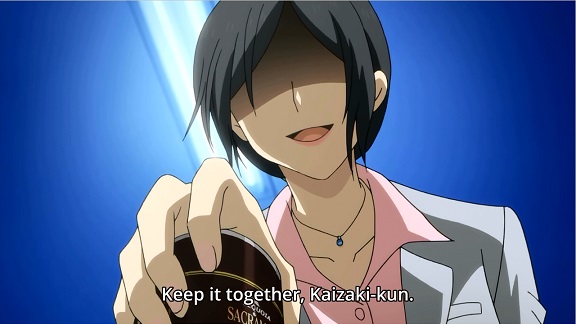
The shut-in or NEET is a character you see a lot of in anime, usually as a side character to function as a figure of fun or pity. Even when they’re the protagonist, whether as mental wreck unable to hack real life or proud otaku rejecting a world they never made, their NEETdom is shown as a character flaw, a consequence of them being broken in some way, their own fault which they have to overcome on their own. It’s rare that a show actually takes a critical look at a society that produces such people, but ReLIFE does. There are very good reasons for why Kaizaki walked away from his job. It turned out he actually worked for a socalled black company, one that overworks its employees, where bullying ran rife and his senior, the woman who trained him, was the main victim as she was the best salesperson and none of her male co-workers could accept that. When Kaizaki found out about this, he attempted to help her, but ended up making things worse. In the end she committed suicide at the office and it was he who found her. Even this didn’t break him; rather it was the callous response of his co-workers and boss that drove him to quit.
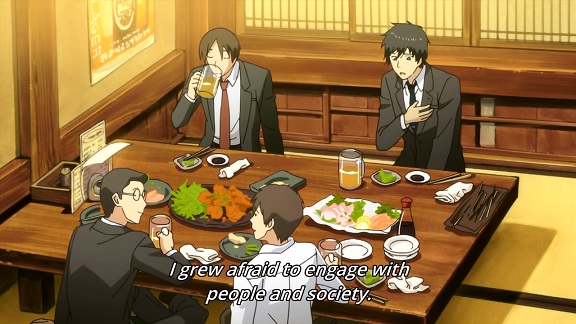
Once you get the whole picture of just why Kaizaki was in the place he was in at the start of episode one, clearly depressed and blaming himself, but having made some progress in getting back to his feet, you have to wonder why it is nobody seemed to have worried about him, or why he is indeed blamed for his depression. Because these revelations only occur late in the series, with only hints about his true situation given at first, their impact is that much bigger. It works very well as an indictment of the sort of real life attitude that condemns people like Kaizaki as losers and shut-ins with no attempt to actually help them. Because you get to know Kaizaki as a person first and see how decent he is when you still think of him as an unmotivated loser, learning how he got broken only increases your sympathy for him.
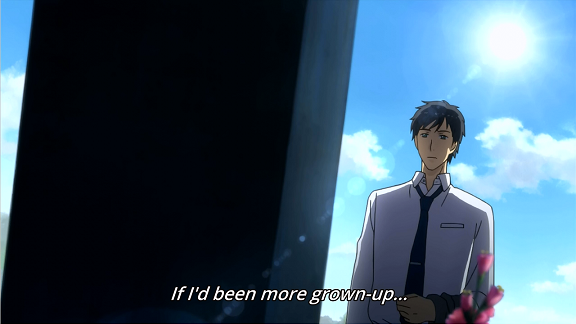
A recurring sentiment in the series is about being a grown-up, accepting things, not going against the flow, fitting in. It’s what Kaizaki’s senior said when she wanted him to accept her being bullied, it’s what he worries about when trying to help his new high school friends with their problems, whether he should actually do so. That’s the “grown-up” attitude that Kaizaki has thoroughly internalised, which lets bullying fester in the name of “harmony”. ReLIFE offers no solutions to this, other than having him get a do-over in high school; there at least he can help other people with similar problems before they grow toxic. High school as the last refuge, the last chance to get your life on the rails as you won’t be able to change yourself afterwards. And as somebody who did turn his life around at twentyseven without going back to high school, that’s a really strange attitude.
